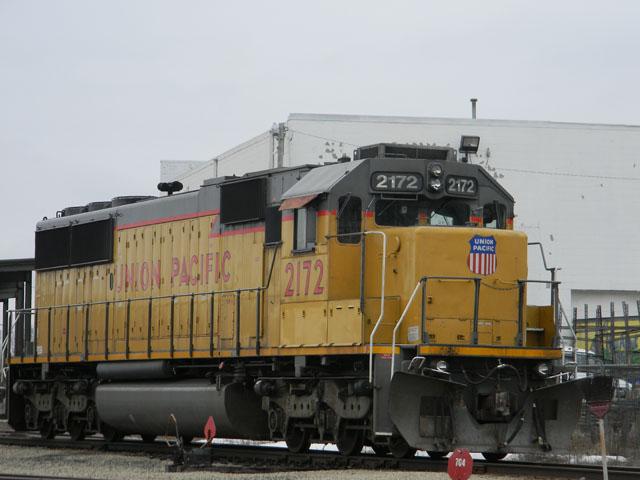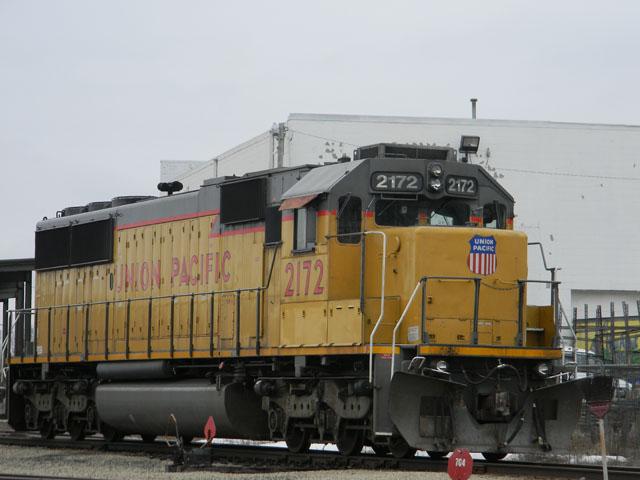Market Matters Blog
Rail Unions Hold Firm on Issues and Finally Reach Tentative Agreement
Rail contract negotiations have been a struggle for nearly three years between the 12 rail unions and the U.S. Class 1 railroads. Finally, in the early morning hours of Sept. 15, the three unions that had been holding out and planned to strike at 12:01 a.m. Sept. 16, announced they reached a tentative agreement with the railroads, averting the walkout.
The negotiations became contentious after the Presidential Emergency Board (PEB) created by President Joe Biden on July 15, 2022, released its recommendations for a contract settlement. The report, while it was a vast improvement over the railroads' previous proposals, did not go far enough "to provide members with the quality of life that they have earned, and that both they and their families deserve," said SMART Transportation Division President Jeremy R. Ferguson on Aug. 18.
As the cooling off period neared an end on Sept. 15, the two largest rail unions Brotherhood of Locomotive Engineers and Trainmen (BLET), the Transportation Division of the International Association of Sheet Metal, Air, Rail, and Transportation Workers (SMART-TD) along with the Brotherhood of Railroad Signalmen (BRS), refused to accept the PEB 250 unless improvements were made to the working conditions that have been on the bargaining table since negotiations began nearly three years ago.
On Sept. 14, the heads of the unions and representatives for the railroads met with Labor Secretary Marty Walsh in Washington in an attempt to reach an agreement. Finally, on the morning of Sept. 15, the leadership of BLET, SMART-TD, and BRS reached a tentative agreement with the National Carriers Conference Committee (NCCC), the representative for the Class 1 railroads.
P[L1] D[0x0] M[300x250] OOP[F] ADUNIT[] T[]
The tentative agreement includes wage increases, bonuses, and no increases to insurance copays and deductibles. The agreement calls for an immediate wage increase of 14% once compounded with an additional 4% on July 1, 2023, and 4.5% on July 1, 2024. In addition, wage increases of 3% effective July 1, 2020, 3.5% effective July 1, 2021, and 7% effective July 1, 2022, will be fully retroactive, for a compounded increase of 24% over the five-year term of the agreement. The press release about the agreement added that there also will be annual lump-sum bonus payments totaling $5,000.
"For the first time our unions were able to obtain negotiated contract language exempting time off for certain medical events from carrier attendance policies. We listened when our members told us that a final agreement would require improvements to their quality of life as well as economic gains. As a result, this agreement includes agreement provisions that will create voluntary assigned days off for members working in thru freight service, and all members will receive one additional paid day off. Most importantly, for the first time ever, the agreement provides our members with the ability to take time away from work to attend to routine and preventive medical care, as well as exemptions from attendance policies for hospitalizations and surgical procedures. Our unions will now begin the process of submitting the tentative agreement to the rank and file for a ratification vote by the memberships of both unions," said Ferguson, along with and BLET President Dennis Pierce.
"This tentative agreement provides for the highest general wage increases over the life of the agreement in over 45 years. SMART-TD was successful in blocking the carriers' attempts to fast track arbitration on a crew-consist agreements, protecting two-person crews for the indefinite future. The carriers' demands for increases in point-of-service health care costs were blocked, along with their demands to charge married employees with children more for monthly health care contributions. Retroactive application of general wage increases and performance bonuses will provide our members with meaningful back paychecks in the coming weeks," noted the press release by the two unions. The unions had made it clear they wanted to meet with the railroads and for Congress not to be the deciding factor, as was the possibility to avoid a strike.
Ferguson and Pierce added, "This agreement would not have been reached without the hard work of President Biden, Labor Secretary Walsh, Deputy Secretary Julie Su and others in the administration. Congressional leaders, including Senators Schumer, Durbin and Sanders, along with Speaker Pelosi listened to your requests and stayed out of our dispute, allowing for an agreement to be reached across the bargaining table, rather than through legislation."
This contract will not become final until the union members have an opportunity to review its terms and approve it through a ratification vote. Combined, the BLET and SMART-TD represent approximately 125,000 active and retired rail employees, approximately half of that membership is employed at Class I railroads that are party to this agreement. The BRS represents over 10,000 members working for railroads across the U.S. and into Canada.
Here is a link to the entire statement which includes the terms of the agreement. https://ble-t.org/…
Here is a link to the latest DTN story about the rail contract settlement: https://www.dtnpf.com/…
Mary Kennedy can be reached at Mary.Kennedy@dtn.com
Follow her on Twitter @MaryCKenn
(c) Copyright 2022 DTN, LLC. All rights reserved.






Comments
To comment, please Log In or Join our Community .